
Small Businesses, Big Dreams
Allison Corter was the manager of a pediatric therapy clinic in Fayetteville who approached the Arkansas Small Business and Technology Development Center at the University of Arkansas about acquiring the business she worked for and becoming her own boss. The Center helped her determine the valuation of the business, develop a plan to purchase it and kept her on track with all her tasks along the way. Prior to this, Corter was unfamiliar with the particulars of running a business and said she had a lot of questions, but the Center gave her the counsel and support she needed.
After taking the helm in 2022 and rebranding the business as Kindred Pediatric Therapy, Corter now says, “It feels great and crazy and wonderful to be a small business owner.”
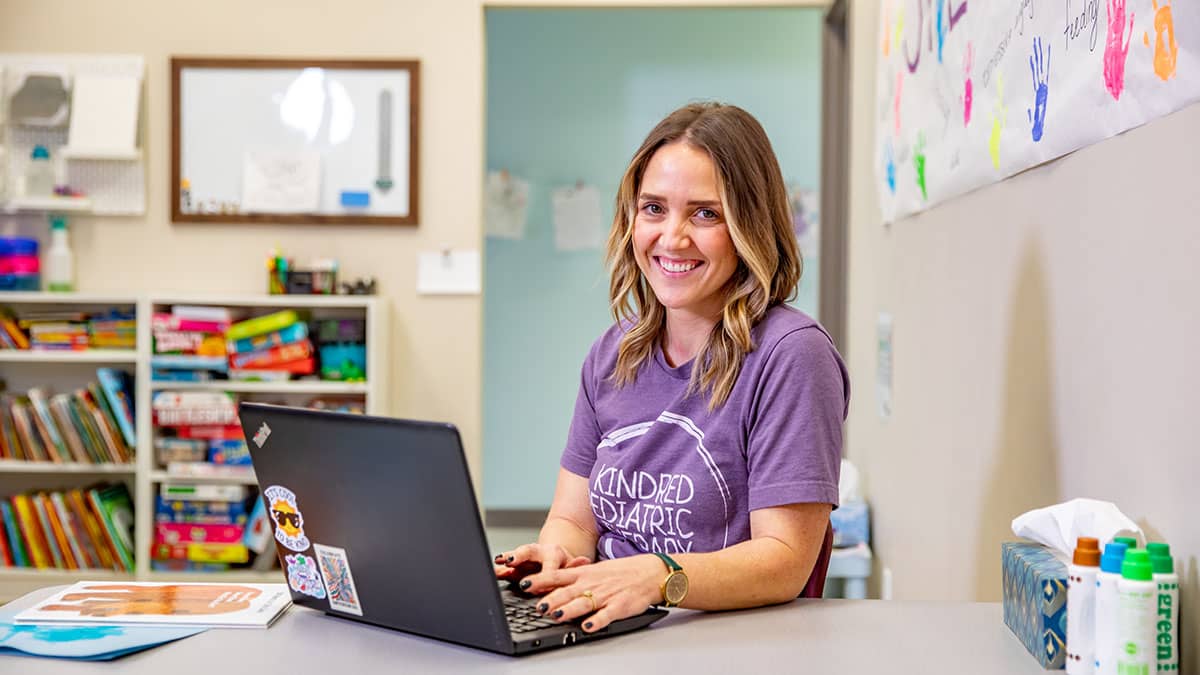
Small business owners face unique challenges: when you own the business, it’s yours – including all of the ups and downs and emotions that come with it. The boundaries between “work” and “life” become muddled, and small business owners find themselves thinking not only about their business but how their lives impact that business as well.
“Working with them was really helpful,” she says. “Having already worked with the pediatric clinic, I was emotionally attached to begin with, and it was nice having someone I could turn to with questions.”
Each year, the Arkansas Small Business and Technology Development Center at the University of Arkansas helps about 1,000 new clients just like Corter– on average two to three new ones a day – with their small business needs. Want to open a new franchise, start your own Pilates studio or acquire a dentistry practice? The ASBTDC has worked with individuals wanting to accomplish all of these and more. In fact, there are probably very few business ideas they have not seen.
Whether someone wants to dream, create, build, or expand, the ASBTDC is there to support their goals.
The ABCs of the ASBTDC
The Center is part of a state and national network that helps small business owners and aspiring entrepreneurs make lasting economic and social impacts to their communities. The University of Arkansas location, which is a regional office of the Arkansas Small Business and Technology Development Center, provides training, research and consultation services to existing and potential business owners in six counties. It also plays a vital role in the regional economic development ecosystem and enjoys a close relationship with the Office of Entrepreneurship and Innovation and includes an office in Bentonville through the Collaborative.
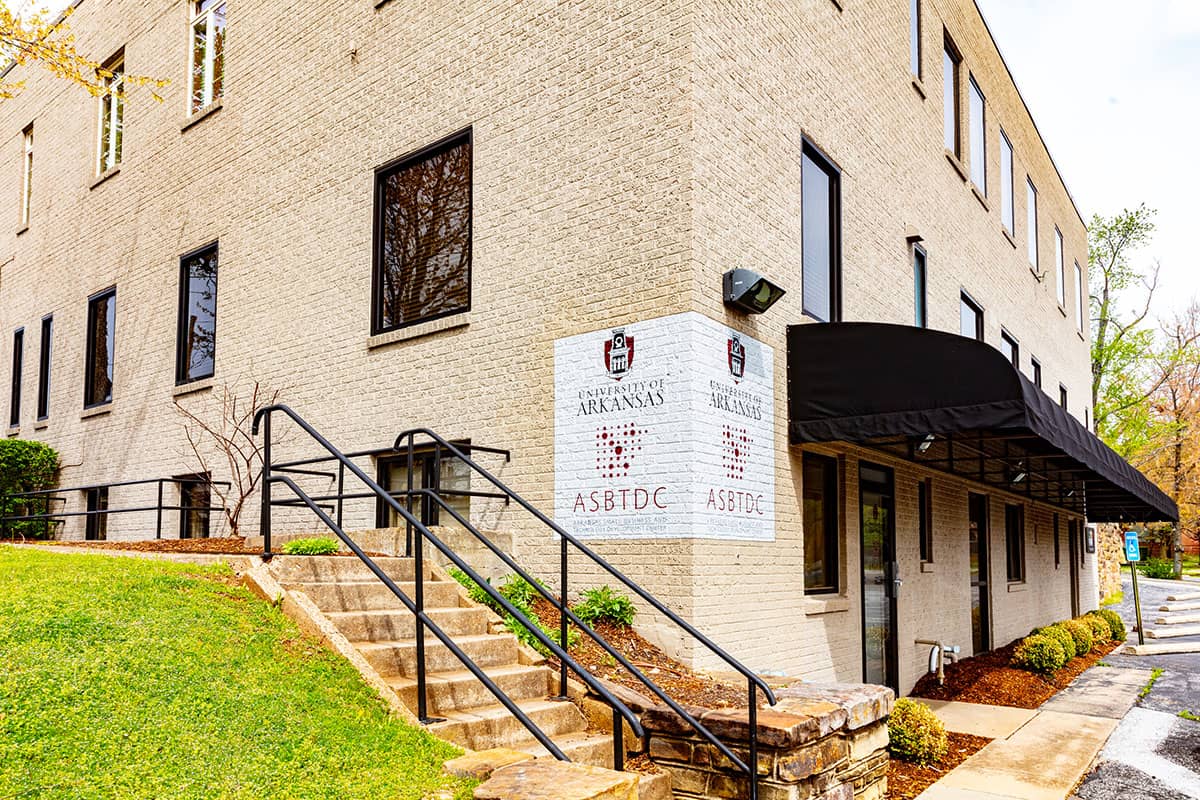
“I learn something new every day,” says Mary Beth Brooks, center director and executive in residence of the ASBTDC. “No two days are alike.”
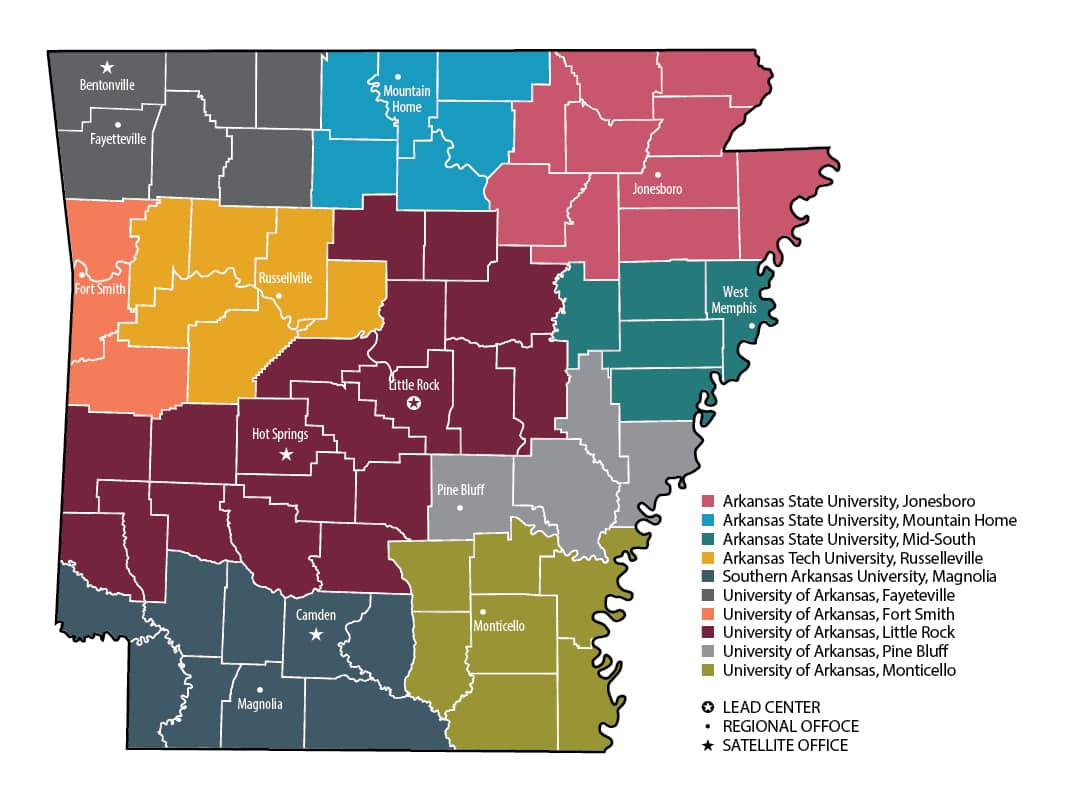
Brooks joined the Center in 2018 after three decades in the banking industry. During that time, she was named one of the “25 Most Powerful Women in Banking” by U.S. Banker Magazine and honored as the Arkansas Business Journal’s Executive of the Year. While her previous roles gave her the opportunity to interact with community businesses and address their financial needs, she says she now has a much larger role to play: “I’m a connector.”
One of the things Brooks loves about the ASBTDC system, which includes 10 centers based at educational institutions, is that small business owners all over Arkansas can get help in any corner of the state. Adding to the unique range of services offered, the ASBTDC also includes a bilingual business consultant, Carolina Mejia, on their staff.
No Small Business Left Behind
When Brooks joined the ASBTDC there was only one other person in the office. But the COVID-19 pandemic in 2020 changed everything.
“There were three of us at the beginning of the pandemic [in early March 2020],” she says. “By March 17, 2020, we had a team of 10, and our big focus was on PPP loans and trying to help local businesses survive. We pretty much became an agency. There were retail businesses that didn’t have an online presence at all, but we knew we could help people.”
Catherine Corley started working for the Center as a contractor at that time. Like Brooks, she was eager to utilize her own corporate experience – with Tyson Foods, Walmart and Kraft Foods – to help local businesses.
Corley says, “Everyone was asking ‘What can I do?’ And we found there was actually a lot we could do.”
The pandemic became the office’s time to shine. They provided local business owners with specific help – like navigating the human resource and legal implications of the pandemic – and general guidelines, such as managing through change. They even provided emotional support, and – of course – helped small business owners apply for the grants made available to them.

“Every time we found out about a grant, we were on it,” Brooks says. “If the application opened at 5 a.m., we were submitting 100 applications before the money ran out at 5:09.”
Restaurants, in particular, found themselves struggling, so the team established a weekly forum for owners to talk through their challenges. Some weeks, there could be up to 75 owners on a call, where they largely bonded over their shared frustrations but also provided each other with much-needed support. The Center hosted epidemiologists who shared recommended precautions, and the City of Fayetteville joined the discussion to coordinate efforts for outdoor dining.
The result was incredible. None of the restaurants that were part of the forum shut down during the pandemic.
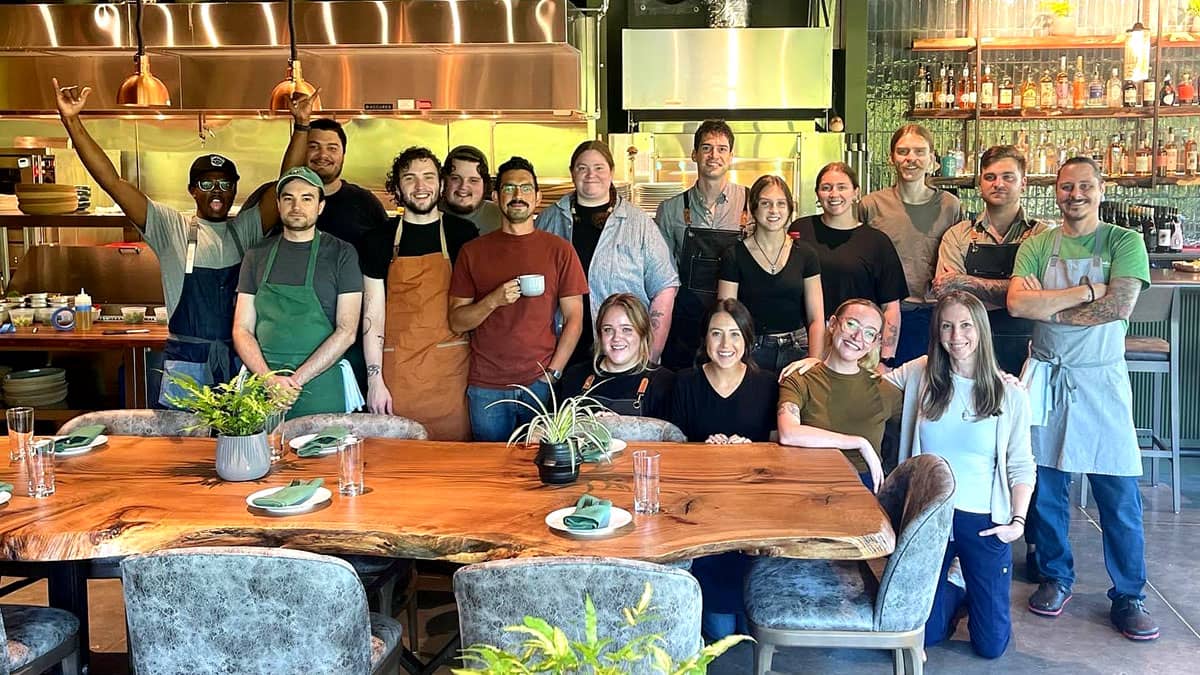
Innovators and Entrepreneurs
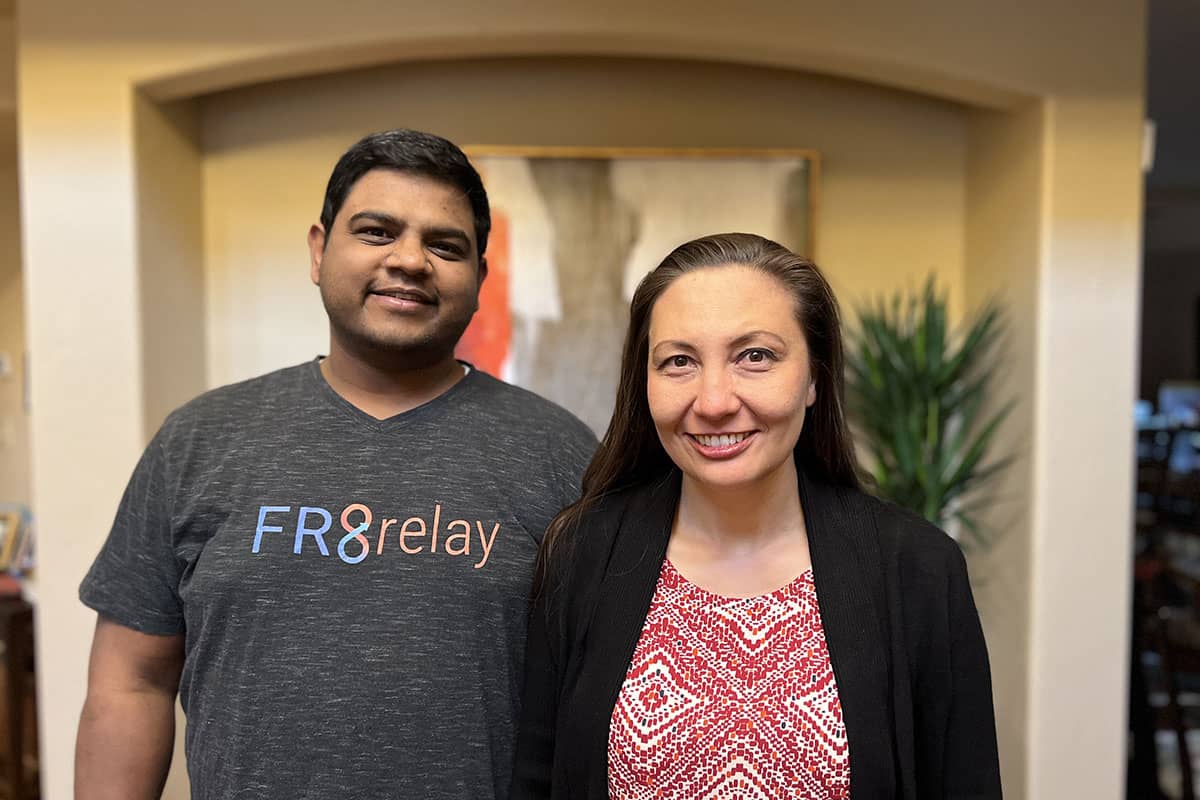
Corley, who has remained with the ASBTDC as a business consultant, now works extensively with innovators and entrepreneurs who want to commercialize their discoveries.
One of the Center’s clients, FR8relay, ended up being awarded four SBIR grants through multiple agencies thanks to their help. The husband-and-wife team of Aayush Thakar and Deme Yuan researched ways to disrupt the conventional long-haul trucking model, which traditionally results in wasted fuel, mismanaged capacity and a poor quality of life for truck drivers. The couple moved to Northwest Arkansas from Memphis because of the supportive entrepreneurial ecosystem. Thanks to the ASBTDC’s assistance with applications for federal and state funding opportunities and introductions with J.B. Hunt Transport Services, Inc., FR8relay has become very successful. Their company is developing mobility software that pools shipments and matches drivers with trailers and cargo in a relay model to ensure equipment and cargo keep moving, while returning drivers home daily.
Small, but Mighty
In May 2022, the ASBTDC received the 2022 Arkansas SBDC Excellence and Innovation Center Award at the statewide meeting in Little Rock. And it’s no wonder – they have customer satisfaction scores of over 94%. In 2022 alone, their eight-person team provided 2,031 consultant hours for 905 new clients and their respective projects and assisted clients in obtaining $17.5 million in capital.
“We are a small, but mighty, team, and I could not be prouder of our accomplishments and impact,” says Brooks.
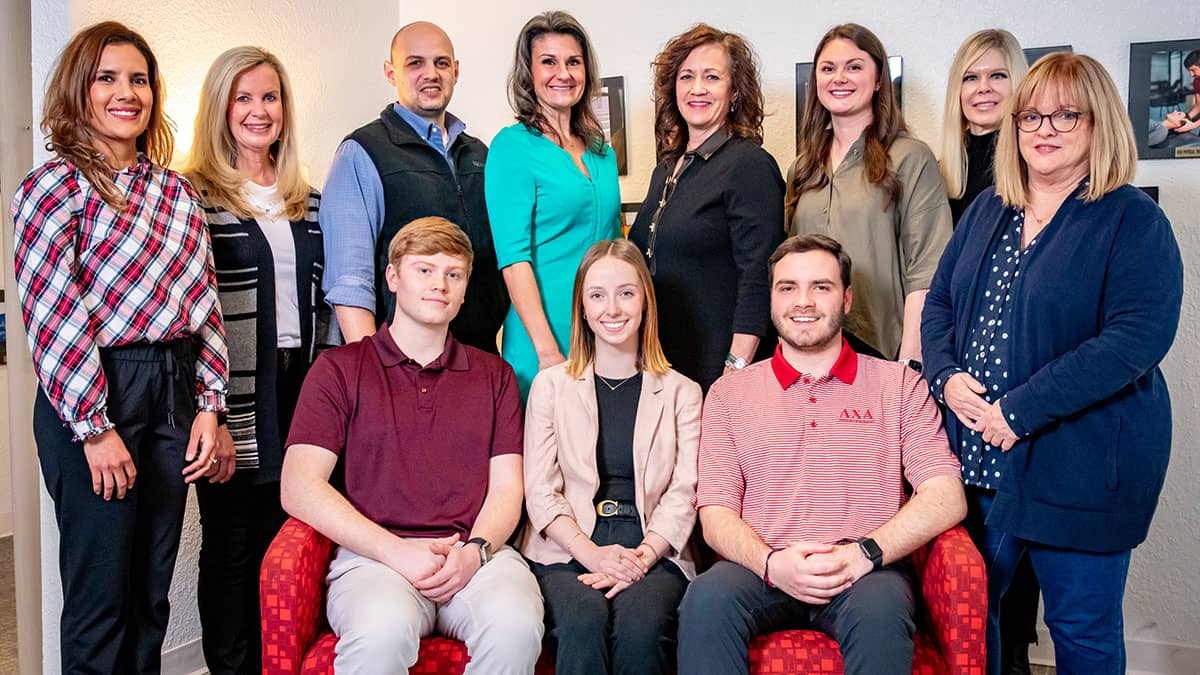
That impact extends to students, like Caleb Elkington-Stauss, who work closely with the Center as interns. Though their time with the team is temporary, it proves to be eye opening.
“I have had the opportunity to gain experience in all types of fields,” he says. “Since we offer consulting services in many different areas, it has given me a well-rounded idea of what it takes to start a business and the opportunity to gain a wide set of skills in different areas.”
Elkington-Stauss is pursuing a major in international business with a concentration in accounting and minors in global studies and entrepreneurship. After graduation, he plans to pursue a Master of Accounting and eventually open his own business.
“If there is a student who is truly interested in entrepreneurship, there is no better place to get hands-on learning experience than at the ASBTDC,” he says. “Interning here has truly reshaped the way I see my future and has given me the confidence to start my own business endeavor one day.”
Short Takes: Small Business, Big Dreams
Hear Mary Beth Brooks discuss the ASBTDC in this episode of the Short Talks podcast.